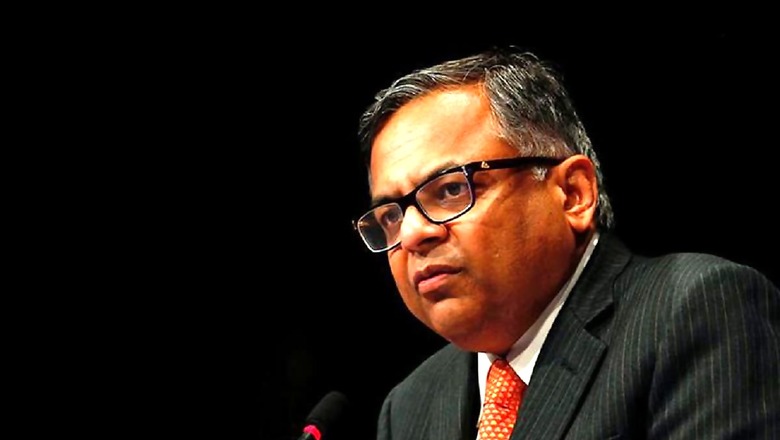
views
A tremendous deal of transformation stemming from COVID-19 is expected in mobility segment over the next two years as consumers move to "slow" travel with personal versus public and/or shared transport likely to shape future demand for passenger vehicles, according to Tata Motors Chairman N Chandrasekaran.
The turnaround journey of the company's domestic business has also been disrupted in 2019-20 as demand deteriorated sharply on the back of an abruptly slowing economy coupled with the spread of COVID-19.
Addressing shareholders in the company's annual report for 2019-20, Chandrasekaran said the global auto industry has grappled with multiple issues during the year.
"On one hand, we saw greater clarity emerge on Brexit; yet on the other hand, mounting trade tensions, muted global growth and enhanced regulatory norms have fundamentally changed the contours of the business environment in which we operate. Next came the onset of the COVID-19 pandemic in the final quarter of the year, which has ushered in a new reality for industries across the world," he said.
Chandrasekaran further said, "As we look ahead over the next two years, we anticipate a tremendous deal of transformation stemming from COVID-19. Consumer behaviour will change in numerous ways, from demanding more integrated digital experiences to prioritising health and safety features across purchasing decisions. The move to 'slow' travel and personal (versus public and/or shared) transport may shape future demand for passenger vehicles."
Greater scrutiny will be placed on building environmental sustainability and climate resilience into the very core of business models, he said adding the Tata Motor Group is "well placed to meet the demand opportunities that will arise from these important and fundamental shifts".
Referring to the performance of Tata Motors Ltd (TML), he said over the past two financial years, TML focused on refreshing its portfolio, improving structural efficiencies and streamlining internal processes. In doing so, TML turned a corner and delivered improved market shares, profitability, and positive free cash flows, Chandrasekaran.
"In FY19, we delivered positive net income of Rs 2,021 crore, after making losses for five years. In both FY18 and FY19, TML produced positive free cash flows, following five years in negative territory.
"However, in FY20, this turnaround journey has been interrupted, as demand deteriorated sharply on the back of an abruptly slowing economy coupled with the spread of COVID-19," Chandrasekaran added.
As for the company's British arm Jaguar Land Rover (JLR), he said the ongoing trade conflicts and COVID-19 adversely impacted JLR vehicle sales in FY20, which contracted by 12 per cent year-on-year. A significant part of the volume decline occurred in the fourth quarter of FY19-20.
JLR was able to improve its profitability during the year and reduce its cash outflows, compared with previous years despite decrease in volumes through a host of structural initiatives to drive efficiencies, he added.
"Our turnaround programme in China resulted in six months of continued double-digit Y-o-Y growth," Chandrasekaran said.
Tata Motors Ltd CEO and Managing Director Guenter Butschek said the demand scenario is expected to remain uncertain in the aftermath of the COVID-19 pandemic even as the need for safe personal mobility evolves into a new area of focus.
"Accordingly, we continue to build agility to respond dynamically to the changing consumer behaviour through closer connect with our customers," he said.
Butschek said TML is building a profitable road map by reducing break-evens, improving cash generation and deleveraging the business.
"A cash improvement programme of Rs 6,000 crore (including a cost savings programme of Rs 1,500 crore) has been called out," he added.
For the immediate, he said the company is focused on executing a senior leadership led comprehensive Business Continuity Plan (BCP) to manage an effective restart and ensure the early revival of the company's ecosystem, while the company has resumed operations at all its plants after taking requisite precautions.
"We intend to scale in a graded manner as the entire enabling support system of suppliers, dealers and customers comes up to speed," Butschek said.
















Comments
0 comment